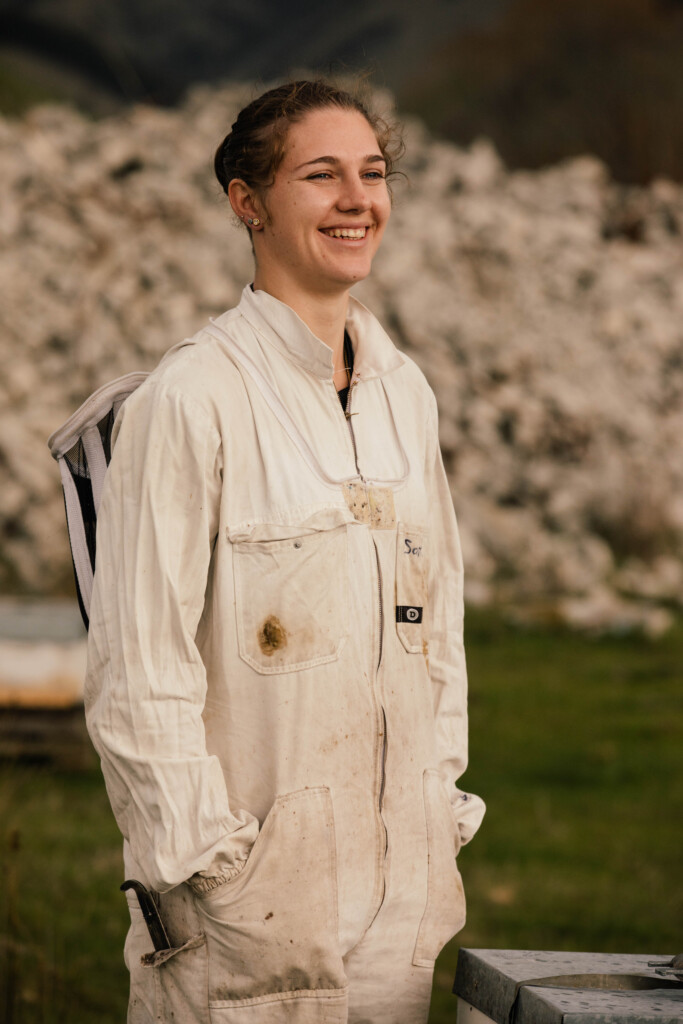
Sam Lawrence, beekeeper apprentice, Marlborough region
ApiNZ Apprenticeship in Apiculture
How did you get started in beekeeping?
I grew up on a farm in the Waihopai Valley and we used to have wild bees on my dad’s property when I was a kid. There were quite a lot of beekeepers around too. I enjoyed seeing these wild bees swarming over the top of us and building comb on trees. Then, all of a sudden, they just disappeared and I always wondered why.
When I was finishing school, my Dad suggested giving a beekeeping a try. I had a real passion for animals, and so I said why not. I also really wanted to know why the bees were disappearing and once I joined this business, I learned it was because of the varroa destructor mite. When it arrived in 2000, it wiped out all the wild colonies.
What are the advantages of on the job training?
I think it’s really good because I’m more of a hands-on person and you’re learning directly from someone more experienced. I find it get it more than if someone is just telling me or if I’m reading it. I’m learning through the Apiculture New Zealand apprenticeship scheme at Taylor Pass Honey in Marlborough. I’ve done my level three and now onto my level four in my apprenticeship. So, I’ve been beekeeping for five seasons now.
What does your role involve day to day?
Every day is different. We go to some quite extraordinary places to check on our bees. So, for instance, today we were up the Wairau, in the hills. We usually rock up to a site and we’ll assess the site and then start working the bees – checking them, treating for disease, harvesting honey that sort of thing. And when you finish working you head home and load up for the next day.
During Bee Aware Month in September we take bees into the schools. We take in a glass hive with two frames of young bees and a queen. The kids get to see what it’s like in a real hive and how bees work and clean in the hive. And we tell them what they can do for bees like plant flowers, put little containers with water and stones in it out for the bees, that kind of thing. It really makes their day.
What do you enjoy most about beekeeping?
You never stop learning. You will never know everything about bees, they are such complex and interesting creatures. Also, your office is everywhere. You get to go to some amazing places.
What are the challenging aspects of the job?
The most challenging part is deciding what’s right for the hives. There are multiple ways you can work a hive and the choices you make can definitely affect the outcome of your honey flow. I guess, after five seasons, it’s starting to become a bit easier. You might not get right all the time but as long as you get it right for the bees, then that’s the main thing. It’s all about trying to get them the best they can be for the honey flow – that’s the main goal.
What’s your plan for the future?
I see myself beekeeping commercially for a few more years then I might change things up and do something else. But bees will always be with me. I’ll still own my own hives and I’ll still share honey with people.
What would your advice be for people interested in getting involved in beekeeping?
My advice would be to definitely give it a go. It’s awesome farming. And if you are ever to own your own hives, my advice would be definitely do your research on bee diseases. That is probably the main thing you want to do – know your diseases and how to look out for them and it’s all fun and learning from there.
